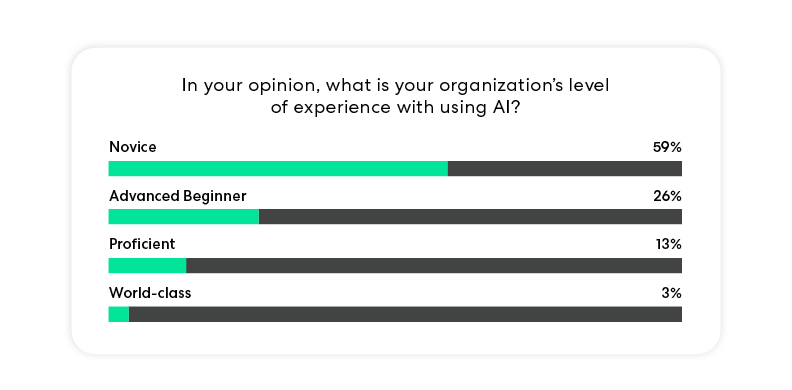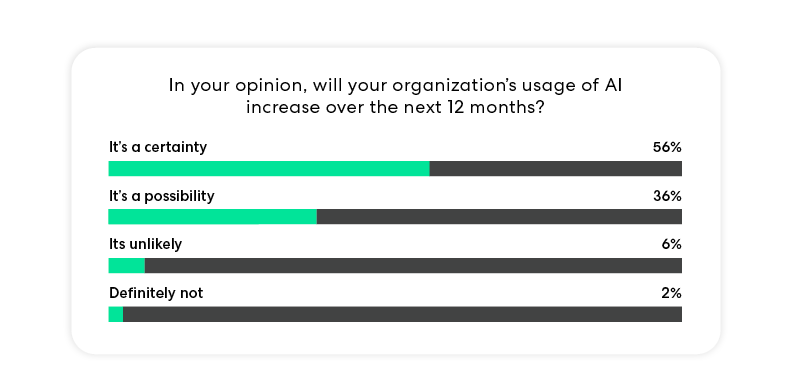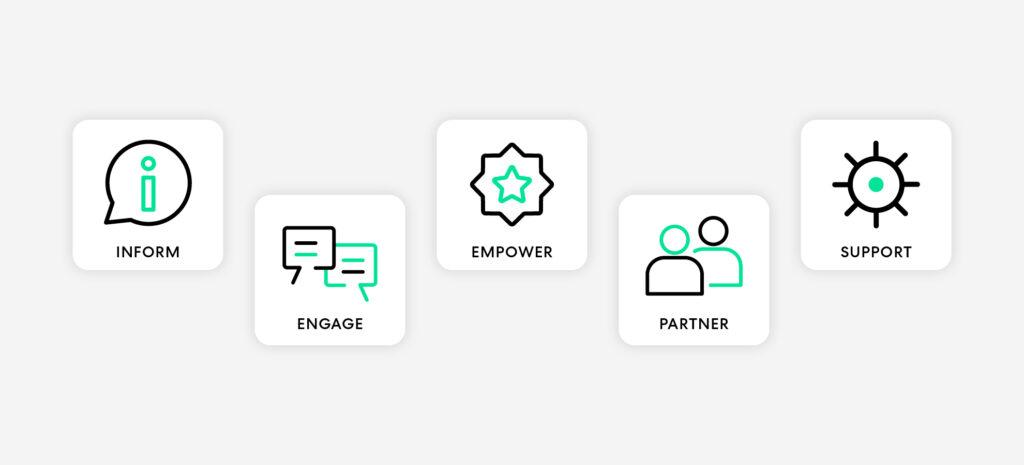In a recent webinar hosted by MAPS, we polled the audience to gauge their skill level regarding generative artificial intelligence (AI) and how much they see their organizations increasing the use of AI in the next 12 months.
Big picture: many of you consider yourselves AI novices or advanced AI beginners and only see organizational use of AI increasing in the year ahead. So what’s the next step?
Based on the Q&A following the webinar, teams seem to be looking earnestly for AI solutions to help them work more efficiently. But as the use of AI in pharma increases across all aspects of drug development, many individuals question how this will impact their work (and, by extension, their jobs). While some remain wary, others see a lot of potential in the type of work AI tools can take off their plates.

- Use a step-by-step process – changes like this take time and effort
- When it comes to what tools are permitted, establish helpful boundaries rather than hard and fast rules – different tools work for different use cases
- Be clear that proprietary data should not be entered into consumer AI tools accessible to anyone
“I think the hope is that AI may be able to reduce the amount of time and effort and allow us to focus more on aspects of our jobs that are more crucial,” said Kate Simmons, Medical Director, Metabolic Genetics at Ultragenyx Pharmaceuticals. “Then reduce the burden of creating this consistent content month after month or quarter after quarter, which can be draining and demoralizing work.”
Embracing generative AI and knowing how to use it may be an excellent way to stay relevant. Experts say that AI “lowers the cost of cognition” and that while AI won’t replace humans, humans with AI will replace humans without AI.
What are humans with AI doing with the technology now, and what benefits are they seeing? As channels (and consequently, data) proliferate, pharma teams use AI to streamline insights analysis and reporting that often weigh down timelines.
“We’ve seen an increase in insights, which is phenomenal,” said Jaclyn Clark, Vice President Within3 Product Strategy. “But now you can actually be really efficient in the time you’re spending, understanding what’s happening in those conversations from the notes from the field, and being able to act on that and then ultimately being able to share that.”
Many in pharma believe that being a curious early adopter of AI is better than being left behind. “One of the things that’s nice about being an advanced beginner is that you can be enthusiastic and not afraid to fail,” said Stacey Gorski, Head of US Medical Excellence at AstraZeneca. “We can share learnings and we learn a lot more from that.”
To listen to the entire discussion, visit the MAPS ContentHub. (Membership may be required.)







